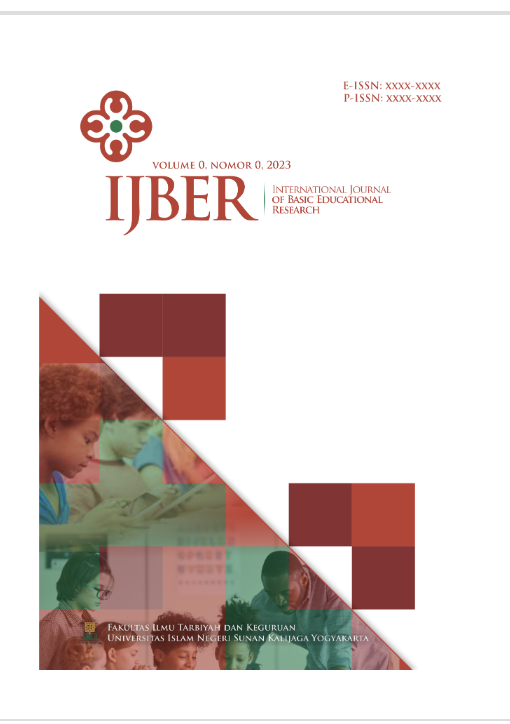The Role of Teachers in Shaping Islamic Education Values in Elementary Schools Theory: Social Construction Peter L Berger
DOI:
https://doi.org/10.14421/ijber.v2i1.8157Keywords:
The Role of Teachers, The Value of Islamic Education, Social ConstructionAbstract
This research aims to analyze the role of teachers in forming values in Islamic education in elementary schools using Peter L. Berger's social construction theory. This research uses the literature study method. Social construction theory makes Islamic education not only carry an academic dimension but also a means of forming character, morals, norms, and educational values for students. Teachers are the main agents in the educational environment, having a very important role in shaping values in the social construction of Islamic education. The role of teachers as educators is very influential in optimizing the competencies possessed by students so that they are ready and able to interact and adapt in real life. The teacher's role is not only limited to delivering material in class based on learning objectives but has a much greater moral responsibility, namely carrying out the process of internalizing values and norms to students, to shape students' character based on applicable values and norms
References
Abdul Majid, Chaerul Rochman, Engkus Kuswandi. (2014). Pendekatan ilmiah dalam implementasi kurikulum 2013 (cet. 1). remaja rosdakarya.
Bhughe, K. I. (2022). Peran Guru Pendidikan Pancasila dan Kewarganegaraan dalam Pembentukan Karakter Peserta Didik di Sekolah Dasar. Jurnal Kewarganegaraan, 19(2), 113. https://doi.org/10.24114/jk.v19i2.36954
Hartati. (2020). Studi literatur: problematika evaluasi pembelajaran dalam mencapai tujuan pendidikan di era merdeka belajar. Konferensi Ilmiah Pendidikan Universitas Pekalongan 2020, 10–15. https://proceeding.unikal.ac.id/index.php/kip
Jamil Suprihatiningrum. (2017). Guru profesional pedoman kinerja, kualifikasi & kompetensi guru (1st ed.). Jogjakarta : Ar-Ruzz Media.
Latifah Husein. (2017). Profesi keguruan : menjadi guru profesiona (1st ed.). Bantul : Pustaka Baru Press.
Muhlich, M. (2011). Pendidikan karakter : menjawab tantangan krisis multidimensional (1st ed.). Bumi Aksara.
Nabila, N. (2020). Tujuan Pendidikan Indonesia. Jurnal Pendidikan Indonesia, 05(2), 867–875.
Nurdin Ismail, H. sri. (2019). Metodologi Penelitian Sosial ( media sahabat Cendikia (ed.); 1st ed.).
Pandie, D. A. H. L. K. L. J. I. (2021). Konstruksi Sosial Masyarakat Desa Oelaba yang Beragama Kristen Terhadap Realitas Sosial Etnis Bajo (Manusia Perahu) yang Beragama Islam Dalam Perspektif Teori Konstruksi Sosial Peter L Berger. Matheteou, 1(2), 1–10.
Peter L Berger. (2010). Tafsir sosial atas kenyataan : risalah tentang sosiologi pengetahuan. LP3ES.
Suwarno. (2020). Studi Agama Islam Melalui Pendekatan Interdisipliner. Dar El-Ilmi: Jurnal Studi Keagamaan, Pendidikan, Dan Humaniora, 7(2), 22–2012. http://www.e-jurnal.unisda.ac.id/index.php/dar/article/view/2178
Syafe’i, I. (s). (2015). tujuan-pendidikan-islam. Jurnal Pendidikan Islam, 6(November), 1–16. https://media.neliti.com/media/publications/56605-ID-tujuan-pendidikan-islam.pdf






